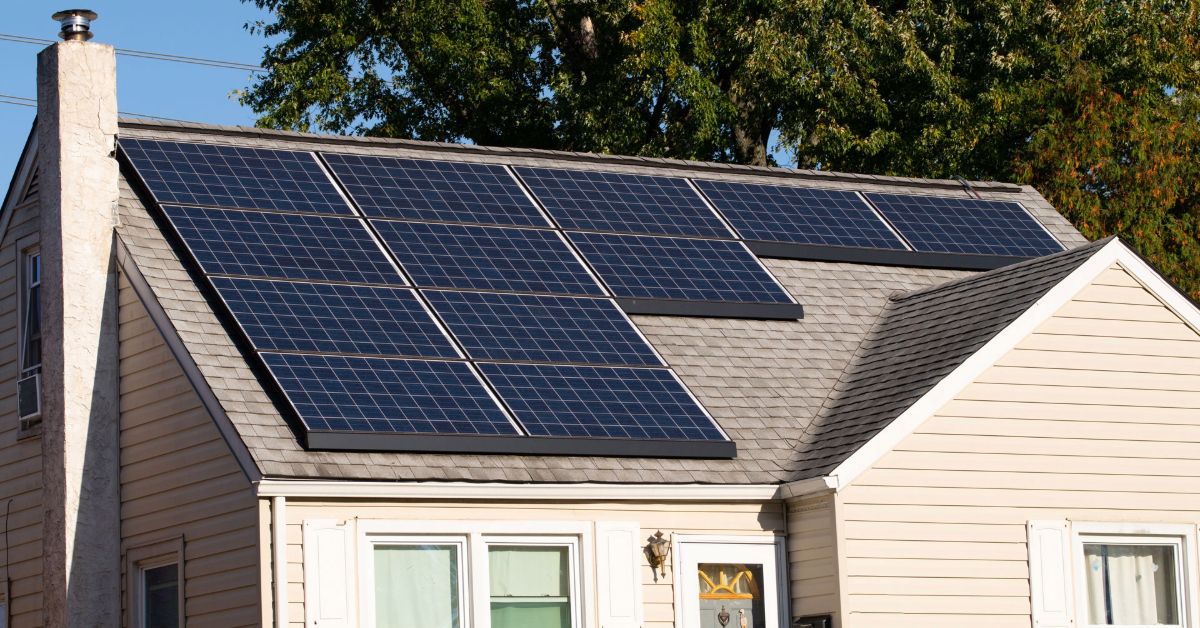
Funding to help fund solar systems for low- and moderate-income households
MADISON — Gov. Tony Evers announced today, as the state and country celebrate Earth Week, that Wisconsin is receiving a grant of $62.4 million from the Biden-Harris Administration to help fund solar systems for low- and moderate-income households across Wisconsin.
Wisconsin is among 60 states, territories, Tribal governments, municipalities, and nonprofits across the country receiving $7 billion awarded by the U.S. Environmental Protection Agency (EPA) under its Solar for All initiative to deliver residential solar projects to over 900,000 households nationwide. The Solar for All initiative was funded by President Biden’s Investing in America agenda through the Inflation Reduction Act, which created EPA’s $27 billion Greenhouse Gas Reduction Fund.
“What better way to celebrate Earth Day and Earth Week, especially here in Wisconsin, where Earth Day began with an idea Gaylord Nelson, our former governor and U.S. senator, had some fifty years ago,” said Gov. Evers. “I’m excited Wisconsin was selected for the EPA’s Solar for All program. This will help support the important benefits of renewable solar energy for low- and moderate-income households across our state through rooftop residential, multifamily, and community solar projects. These investments will help Wisconsin build upon our work toward achieving 100 percent carbon-free electricity by 2050 while creating good-paying jobs, reducing reliance on out-of-state energy sources, and lowering energy costs for Wisconsin homeowners and renters.”
Over the last two years, Wisconsin has accelerated solar power deployment as a sustainable way to provide energy to power households. According to the Solar Energy Industries Association, Wisconsin currently has over 1,251 megawatts of installed solar statewide, increasing its ranking from 31 to 21 out of 50 states with the highest use of solar power.
The Wisconsin Economic Development Corporation (WEDC) sought the grant, a competitive process to develop long-lasting solar programs that enable low-income and disadvantaged communities to deploy and benefit from distributed residential solar, lowering energy costs for families, creating good-quality jobs in communities that have been left behind, advancing environmental justice, and tackling climate change.
In competing for the awards, WEDC said solar power installation will help Wisconsin avoid almost two million tons of carbon dioxide emissions from harming the environment annually.
“Gov. Evers and all of us in his administration are working to build an economy for all,” said WEDC Secretary and CEO Missy Hughes. “Likewise, we seek to create an energy system that is renewable and works for all. The grant represents a huge step forward in that effort.”
With the grant, WEDC said the Wisconsin Solar for All Program would increase solar capacity throughout the state with a goal of serving as many low-income Wisconsin residents as possible by offering multiple avenues to the solar power market. Low-income households comprise approximately 29 percent of Wisconsin households.
Access to solar power can significantly reduce energy burdens for low-income residents by reducing the percentage of income currently spent on energy costs. However, the cost of installing solar systems is foremost among the barriers they face. The Wisconsin average cost for a 5-kilowatt rooftop system is $14,000 to $19,000 before federal tax credits and local incentives.
To overcome such challenges and provide equitable access to affordable clean energy to low-income households, the Wisconsin Solar for All initiative will leverage private capital to maximize federal Solar for All funding and build a sustainable financial assistance program beyond the initial five-year program timeline.
EPA anticipates that awards to the selected applicants will be finalized in the summer of 2024. WEDC anticipates that it will begin funding projects late in 2024 or early 2025.
Original press release from Gov. Evers office is available here.
